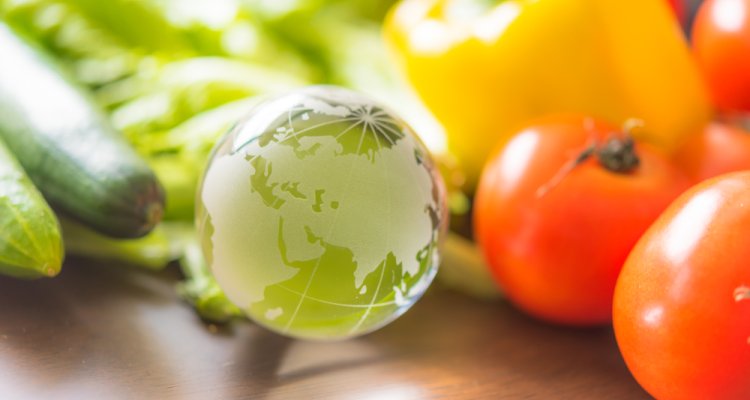
News
WUR and WWF at the Science Summit of the UN General Assembly
From September 12th to September 29th, 2023, the Science Summit will take place in New York during the 78th United Nations General Assembly. WUR is co-hosting a session with WWF titled "From Global Goals to Greener Plates: Empowering Nature with Sustainable Diets."
Wageningen University & Research scientists will be attending the summit to discuss the contribution of scientific research to achieving the UN Sustainable Development Goals. These 17 goals have been set to eradicate poverty, inequality, injustice, and environmental issues by 2030.
The session, which is scheduled for Friday, September 15th, from 7:15 PM to 8:45 PM (CET), aims to establish a connection between these goals and a "green" diet for everyone on Earth. This green dietary pattern is genuinely sustainable only if both production and consumption become more sustainable. ‘What we eat is just as important as how we produce it,’ explains Jeanne Nel. She heads WUR’s Biodiverse Environment Programme and is one of the six speakers during the session.
Sustainable Dietary Pattern
‘Global attention is still insufficient when it comes to the link between climate, biodiversity, food systems, and health, both in politics and within organisations,’ notes Nel. Yet, choosing a planetary diet – one that is high in health benefits and has low environmental impact - also helps to tackle climate change and biodiversity loss.
The vast majority of wealthy countries, for example, eat far too much meat, which is leading to all sorts of health and environmental problems. ‘We’re talking big environmental impacts here. The greenhouse gas emissions from meat production alone are about the same as all the global driving and flying put together’. Agriculture is also driving the vast majority of global deforestation and biodiversity loss.
During the session, Nel, Professor of Global Nutrition Edith Feskens, WUR-president Sjoukje Heimovaara, and three speakers from WWF will strive to provide participants with deeper insights into this connection and share inspiring examples. Feskens will highlight the theme from her research on combating malnutrition in all its forms, including deficiencies in certain micronutrients and proteins. Nel will focus on the link between biodiversity and the other topics. WWF's speakers will delve further into the connection between science and the practice of nature conservation, politics, and policy. For example, Nelly Kadagi, Director of WWF’s Conservation Leadership and Education for Nature Programmes will speak about bringing action to local contexts through food fellowships that enhance the training of emerging leaders and researchers.
Brent Loken, Global Food Lead Scientist of WWF, states: "It’s never been more urgent to raise the ambition to solve the climate and biodiversity crises, and food systems are central to this. There is a rapidly narrowing window of opportunity to limit warming to 1.5C, and ambitious partnerships, such as that between WUR and WWF, are needed. This event is important, not only because of the topic, but also because it signals the start of an important collaboration between two globally leading organisations to turn knowledge into action on the ground.
Consumption and diets are too often ignored in the climate debate, yet the potential of diets to help solve the climate and biodiversity crises is enormous. In fact, a recent study demonstrated that reducing consumption of animal products globally with more sustainable alternatives could almost fully halt the converting of forests and natural land for agriculture. This event will tackle the issue of diets and consumption and highlight the urgent need to include this powerful lever of change in all policy discussions on the road to COP 28 and beyond."
Sharing and accelerating knowledge
Subsequently, the speakers will engage in a discussion with participants about how governments can contribute to achieving a greener consumption pattern and the dilemmas they may encounter in the process. Nel remarks, ‘It’s not just an individual choice. Governments, businesses, and educational institutions can do a lot to assist citizens.’ Therefore, sharing knowledge and raising awareness is a crucial objective of the session.
Ultimately, Nel and the other speakers hope that the session will generate ideas and input for upcoming UN summits, including the Summit of the Future (September 22-23, 2024). This summit is meant to lead to concrete agreements toward a sustainable future. The upcoming UN General Assembly marks a significant point in this journey. ‘We are halfway through the time we've set to achieve the UN Sustainable Development Goals. Now is a moment of reflection, explains Nel. ‘We need to step up to meet the goals by 2030. This is possible if we work together and break down the walls surrounding each issue.’